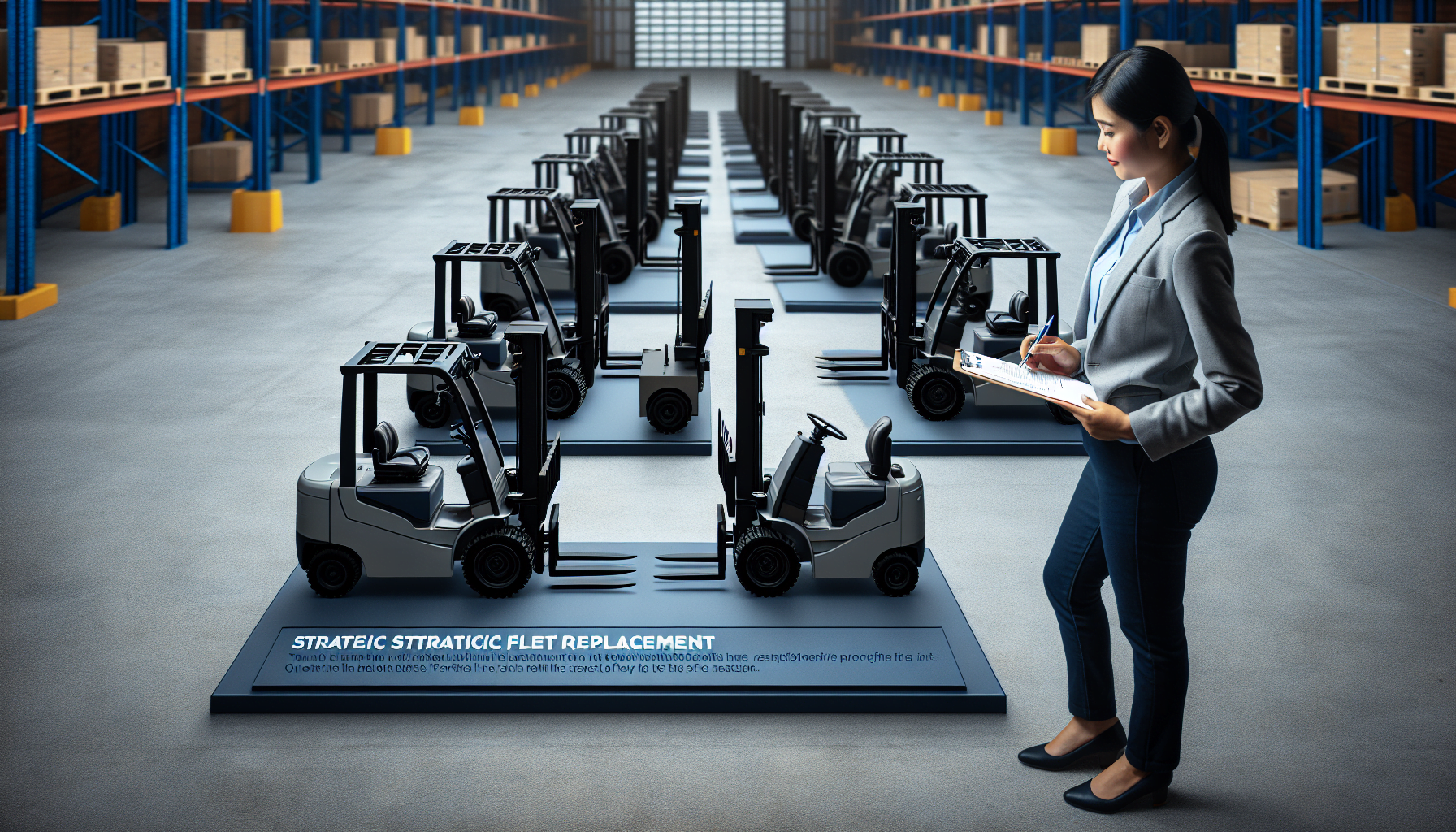Implementing a cost-effective forklift fleet replacement strategy is crucial for any warehouse operation looking to enhance safety, productivity, efficiency, and profitability. With advancements in technology and the increasing demand for streamlined warehouse operations, it is essential for businesses to optimize their forklift fleet to stay competitive in the market.
The Importance of Forklift Fleet Optimization
Forklifts are a vital component of warehouse operations, enabling efficient material handling and streamlined operational processes. However, as forklifts age, they can become less reliable, less efficient, and more costly to maintain. This can lead to compromised productivity, increased downtime, and higher operational expenses.
Implementing a cost-effective forklift fleet replacement strategy not only addresses these issues but also brings several benefits:
- Enhanced Productivity: Upgrading to newer forklift models with advanced features can improve productivity and operational efficiency by reducing cycle times and eliminating bottlenecks.
- Improved Safety: Newer forklift models often come equipped with advanced safety features such as anti-collision technology, proximity sensors, and improved visibility, reducing the risk of accidents and injuries in the warehouse.
- Reduced Maintenance Costs: An aging forklift fleet requires more frequent repairs and maintenance, resulting in increased costs. By replacing older forklifts with newer models, businesses can reduce maintenance expenses and increase uptime.
- Increased Energy Efficiency: Newer forklift models are designed to be more energy-efficient, resulting in reduced fuel or electricity costs and a smaller carbon footprint.
- Compliance with Regulations: Forklift fleets need to comply with safety and environmental regulations. Upgrading to newer models ensures compliance with the latest standards, avoiding penalties and legal issues.
Warehouse optimization solutions providers like HCO Innovations specialize in helping businesses implement a cost-effective forklift fleet replacement strategy. They offer comprehensive fleet assessments, technology integration, and expert advice to optimize fleet performance and maximize return on investment.
Key Steps to Implement a Cost-Effective Forklift Fleet Replacement Strategy
Implementing a forklift fleet replacement strategy requires careful planning and execution. By following these key steps, businesses can ensure a smooth transition to a cost-effective and efficient forklift fleet:
- Assess Current Fleet Performance: Conduct a thorough evaluation of the existing forklift fleet, considering factors such as age, maintenance history, utilization, and operational inefficiencies. Identify areas for improvement and determine the key performance indicators (KPIs) for the new fleet.
- Set Fleet Replacement Goals: Define clear objectives for the new forklift fleet, such as improving productivity, reducing maintenance costs, or enhancing safety. These goals will guide the selection and replacement process.
- Research and Select the Right Forklift Models: Consider factors such as load capacity, maneuverability, energy efficiency, and compatibility with existing warehouse infrastructure. Consult with experts or warehouse optimization solution providers to determine the best forklift models for your specific requirements.
- Create a Replacement Timeline: Develop a realistic timeline for replacing the existing forklift fleet. Consider operational requirements, budget constraints, and the availability of new forklift models.
- Plan for Training and Integration: Provide training programs to ensure a smooth transition for operators and other warehouse staff. Familiarize them with the features and functionalities of the new forklift fleet. Also, consider integrating the new fleet with existing warehouse management systems to optimize operations.
- Monitor and Evaluate Performance: Track the performance of the new forklift fleet using established KPIs. Regularly evaluate metrics such as productivity, maintenance costs, and safety incidents to identify any areas requiring improvement.
- Optimize Fleet Management: Implement advanced fleet management tools and technologies to streamline operations further. These can include telematics systems, maintenance tracking software, and predictive analytics to optimize fleet utilization and reduce costs.
Implementing a cost-effective forklift fleet replacement strategy is an ongoing process. By continuously monitoring fleet performance, staying updated with technological advancements, and leveraging the expertise of warehouse optimization solution providers like HCO Innovations, businesses can maintain a competitive edge and drive operational success.
Investing in a quality forklift fleet replacement strategy will not only improve operational efficiency but also enhance safety and reduce costs in the long run. Don’t wait until your forklift fleet becomes a hindrance to your warehouse operations. Start planning for a cost-effective replacement strategy now and transform your warehouse into a more productive and efficient space.

